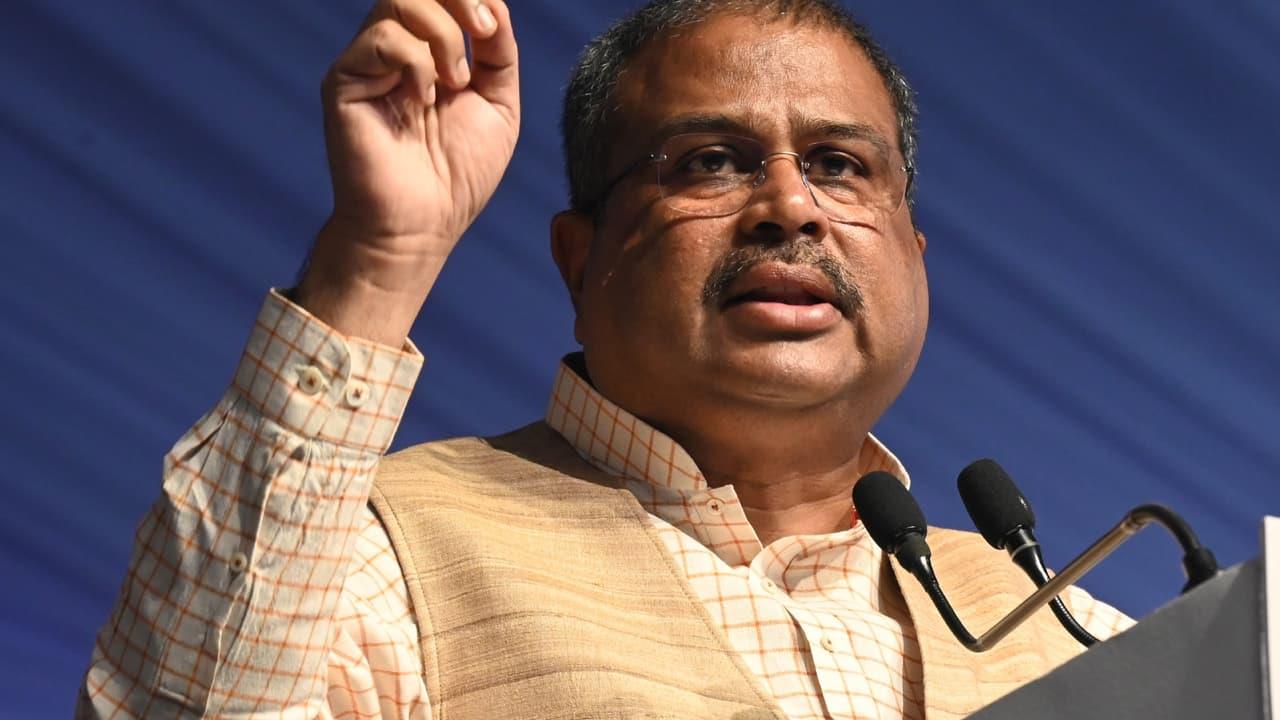
Why Education Minister Wants Every Classroom To Sing 'Vande Mataram'
Union Education Minister Dharmendra Pradhan has called for making the collective singing of 'Vande Mataram' in classrooms a powerful and regular tradition across universities and schools in the country. He said that this initiative would connect students with India's national spirit and turn the national song into a mass movement of pride and unity.
A call to make 'Vande Mataram' a people's movement
Speaking at an event organised at Delhi University's Ramjas College on Monday to mark the 150th anniversary of 'Vande Mataram', Pradhan said that singing the full version of the song together should become a part of student life. He urged young people to carry forward its timeless spirit.
"Let the collective singing of Vande Mataram in every classroom of the university be established as a powerful tradition; only then will it evolve into a mass movement," he said.
He added,“Back then, we sang Vande Mataram for freedom; today, Vande Mataram will serve as our guiding light in building a developed and prosperous India.”
Inspiring students through unity and patriotism
The Education Minister said that joining the students of Ramjas College in singing the national song was a deeply inspiring experience. He reminded the audience that Vande Mataram symbolised India's freedom struggle and unity, bringing the entire country together as one family.
“After long struggles and sacrifices of countless nation-servers, we attained Independence in 1947. Vande Mataram was the proclamation of that national consciousness which wove the entire country into a single thread,” Pradhan said.
He also urged the University of Delhi to take the lead in spreading this tradition and ensuring that the spirit of the song continues to inspire future generations.
The history and importance of 'Vande Mataram'
According to the Union Culture Ministry, Vande Mataram was written by Bankim Chandra Chatterji on Akshaya Navami, which fell on November 7, 1875. It first appeared in the literary journal Bangadarshan as part of his novel Anandamath, and was later published as a separate book in 1882.
The song invokes the motherland as a symbol of strength, prosperity, and divinity, and gave poetic voice to India's awakening spirit of unity and self-respect. It became a rallying cry for freedom fighters and a symbol of devotion to the nation during India's independence movement.
On January 24, 1950, then President of the Constituent Assembly Rajendra Prasad declared that Vande Mataram, which played a historic role in India's freedom struggle, would be accorded equal honour with the National Anthem 'Jana Gana Mana'.
A song beyond time and community
Pradhan also underlined the song's universal appeal. "Every word of Vande Mataram is dedicated to the mother, and a mother can never be communal," he said. "Vande Mataram was composed years ago; it is a timeless creation. The spirit and inspiration it contains remain relevant at all times."
At the end of the event, the minister and university members took a Swadeshi pledge together, promising to uphold the values of self-reliance and patriotism.
(With inputs from agencies)
Legal Disclaimer:
MENAFN provides the
information “as is” without warranty of any kind. We do not accept
any responsibility or liability for the accuracy, content, images,
videos, licenses, completeness, legality, or reliability of the information
contained in this article. If you have any complaints or copyright
issues related to this article, kindly contact the provider above.


















Comments
No comment